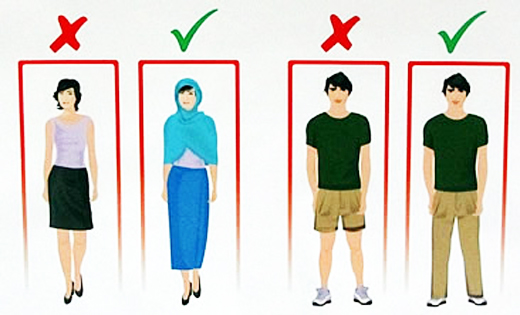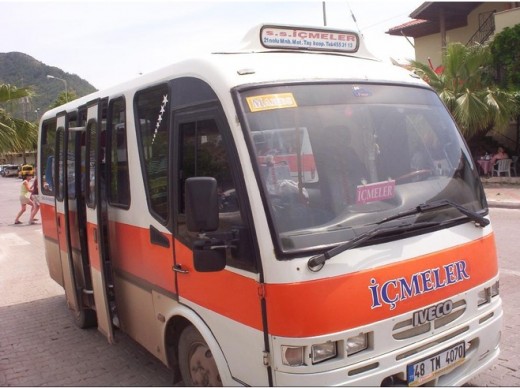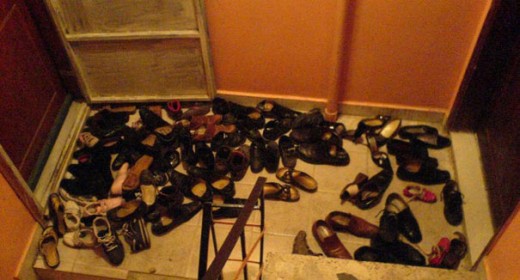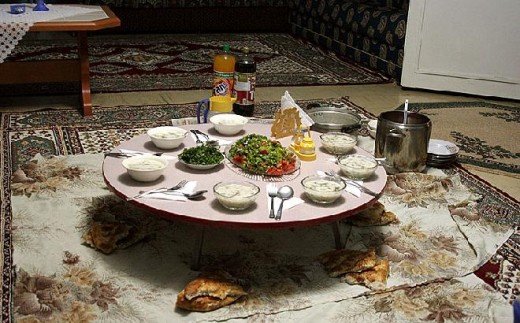About tastes and colors do not argue. Turkish proverb
Turkey, like a patchwork quilt, is bright and multifaceted. For thousands of years, the culture of this country has absorbed the customs of many peoples of the Mediterranean, the Middle East, the Caucasus, Eastern Europe and Central Asia.
Modern Turkey is a tolerant state, where guests are welcome. But, like any other people, the Turks are pleased when visitors know their traditions. If they see that you observe local etiquette, be sure – the Turks will show you the upper hand of piety and respect.
From this article you will learn how to “read” the Turkish language of gestures, go to visit and conduct business negotiations. So, welcome to Turkey!
Peace in the Country, Peace in the World
Turkey is a Muslim country. 96% of the population professes Islam. However, Turkey is the first Muslim country where religion is separated from the state.
Nevertheless, it is worth remembering that Islam has a huge impact on the culture and daily life of local people. Many rules of etiquette are dictated by the peculiarities of this religion.
If there are a lot of progressive Europeanized young people in large cities (girls do not wear handkerchiefs, couples can go hand in hand, etc.), then in Turkish remote areas morals are much stricter.
Turks are fond of their history. And the main figure in its modern segment is Mustafa Ataturk.
He made Turkey the way it is now, and the Turks are grateful for it. If you say that Ataturk is revered, do not say anything. To speak out negatively about this political leader is to show contempt for the Turkish people.
There are also two topics that are best left out of contact with the Turks – the Kurds and Cyprus. In addition, it is not worth mentioning Istanbul as Constantinople and confusing the capital of the state (the main city of Turkey now is Ankara).
Taaagil!
Coming to a Turkish resort, we rarely care about learning the local phrases of greetings and farewells. And in vain! Turks are very pleased when they hear from a foreigner “Merhaba”.
“Merhaba” (sometimes “x” is not pronounced)) – this is the usual greeting, translated as “Hello!”.
Also, you can often hear “Selam” (“villages”), which means “Hello!” And is used in an informal setting.
Leaving, they say “Iyi günler” (“iyi günler”), which literally translates as “Good day!”, But at parting means “All the best!”. You can also say goodbye:
- Güle güle (“gyule güle”) – Goodbye (they say the remaining ones).
- Hoşça kal (“koshcha kal”) – It’s good to stay (says the outgoing one).
- Goruüşürüz (“Geryushchuruz”) – See you.
As for non-verbal communication, men (!), If they are close friends or relatives, can hug each other, kiss each other on the cheek. Outside men greet each other with handshakes (they always serve their right hand).
If at a meeting a hand for a handshake is served by a woman, it looks strange. Because of this, tourists often get trapped. For the Turk, sometimes, this gesture means that a woman is ready to get to know sooo close.
Turkish etiquette strictly regulates relations between persons of different generations. The Turks revere the elderly. Turning to the elders (if they are not relatives and not close friends), it is customary to add to the name a respectful suffix – “bai” (“gentleman”) or “hanym” (“mistress”).
Relatives of the older generation are greeted by kissing the hand (the back side of the palm) and applying it to the forehead.
The question “How are you?” (“Nasılsiniz” – “Nasylsynyz”) is often answered positively – it’s not accepted to complain about your worries.
But it is necessary to use “magic” words:
- Teşekkürler (teschekuler) or teşekkür ederim (“teszekekur ederim”) – thank you.
- Lütfen (“Lütfen”) – please (request).
- Bir şey değil (“Bir shay dail”) – please (thanks).
Sign Language
Turks use the body language that is unusual for Europeans. When you come to this country, be cautious with your usual gestures – for local people they can have a different meaning.
So, turning the head to the right and left (our gesture “no”) does not mean denial. Most often, because the Turks show a lack of understanding – “I do not know what you are talking about.”
A single nod with a head, like ours, means “Yes”, but the same gesture, accompanied by a click of the tongue, is already a solid “No”. In general, clicking a language in Turkish culture is a sign of denial, disapproval of something.
Clicking with your fingers, on the contrary, demonstrates a positive attitude. At the same time, we can not replace this gesture with the usual finger for us – in Turkey this gesture is considered ugly.
To politely refuse the offer or to thank for the service in the body language, you should put your hand to your chest.
On the street
The rules of behavior in the streets of Turkish cities and villages are dictated mainly by Islam. The more provincial the terrain, the more strictly the morals and the more careful it is to behave in public places.
As such, there is no dress code, but remember:
you can not approach mosques and other religious objects in shorts, short skirts, jackets and dresses with open shoulders.

Many tourists believe that beach fashion (swimwear, pareo) can be transferred to the streets of the city. This is not true. Promenade in a swimsuit or just shorts (without top) – looks, at least, strange.
As for the behavior on the beach, then again it is worth remembering that most of the Turks are Muslims. In the territory of many hotels it is not forbidden to sunbathe topless. But still, by local standards it is vulgar.
If, walking around the city, you suddenly want to take a picture of a Turkish man, you should ask permission from him; but to photograph Turkish women (especially if they are wearing a headscarf) is not recommended at all.
Islam also has an impact on the attitude towards alcohol. A foreigner can buy alcohol in a store (only in Ramadan the shelves are closed with him), but here it is not worth using it in a public place. Also, the Turks rarely eat on the go.
By the way, during the Muslim holy month of Ramadan, when believers abstain from food, water and smoking from sunrise to sunset, one should not eat and smoke in their presence. This will be your sign of respect, which will not go unnoticed.
In transport
In large Turkish cities (Istanbul, Ankara), special electronic cards are used to pay for travel in public public transport.
If you run out of money on it, do not worry – the locals are very responsive. Often, visitors are helped by paying their fare with their card.
In this case, thanking them in return for cash is unlikely to succeed – they will not take it. If the Turks help, then from the heart.
For the European, the Turkish transport system may seem like hell. (Speech about large cities.) Drivers practically do not use turn signals – be careful! But they like hiking with horns. This is a way of “communication”. If we are signaled to warn about the danger, then in Turkey – for any reason (green does not light up for a long time, a friend passed by, someone too slowly drives ahead, etc., etc.).

When landing in the subway or tram – a real thrift. The fact is that the Turks do not wait for the arrivals to leave the car, they just climb ahead, pushing everyone.
In the bus or dolmushe (Turkish “minibuses”), if there is a choice of places, do not sit next to an unfamiliar woman, if you are a man. This is not accepted. And the girls, on the contrary, it is better to choose a place next to the girls.
Away from home
Hospitality (misafirperverlik) is an important element of Turkish culture. Especially in the province. The guest is always offered all the best, regardless of the wealth of the family.
From the invitation to visit it is difficult to refuse (and it is better not to do this) – it is always furnished with a number of elegant prepositions. If you really can not accept it, then better refer to employment – this is the reason the Turks will understand.
As for gifts for the owners of the house, in Turkey there is a saying: “They ate sweetly – they talked sweetly”. It is quite possible to perceive it literally – bring sweets as gifts. An excellent souvenir from your country will also be an excellent gift.
Have you seen a lot of shoes in the entrance or in front of the house entrance? Do not be surprised! This is a sure sign that the Turks live here. In Turkey, it is not customary to take off shoes in the house (Turkish housewives keep clean), shoes are left behind the threshold.

Inside you will be offered slippers. In Turkish families, as a rule, there are special – “guest”. Do not you like walking in other people’s slippers? Bring your own. In Turkey, this act will be absolutely normal.
Turkish houses are usually divided into a guest and private area. Do not try to look behind closed doors and do not ask for a tour of the house – it’s impolite.
Also in some conservative families it is not customary to start eating without the permission of the elder and even to smoke without his approval. By the way, many Turks are smoking.
The visit is unlikely to last less than two hours. You will not only be given tea or coffee, but they will also tastily feed you. But it’s not recommended to stay too late.
At the table
It is worth to distinguish between a homemade meal and a dinner in a restaurant.
In the first case, traditional Turkish dinner, as a rule, takes place in the presence of all members of the family. At the same time they eat at a low table, sitting “in Turkish” on the floor on cushions or mats. The feet are hidden under the table.

Dishes (they are usually three or more) are placed on a large tray and served on the table. From this tray you can put food on your plate (with your hands or with a common spoon). But you need to do this only with your right hand and in no case choose a piece better. This is the height of disrespect for the owners of the house.
On holidays, a national aniseed vodka of crawfish (it is also a raki, aka rakia) is often put on the table. Having uttered a toast, clink glasses only bottoms, and putting the vessel on the table, you need to think about those who could not be present with you.
At the table it is considered uncultured to talk without the permission of the elder, and also open your mouth wide (for example, to use a toothpick).
If you were offered to try some dish (the proprietary dolma of the hostess), do not give up, even if you are not hungry. Otherwise, you can offend the owners, and the questions “Not tasty?”, “Do not like it?” – can not be avoided. You do not have to eat until the end, but you need to try.
As for dinner in the restaurant, here, more often than not, you can find a European style – ordinary tables, chairs, serving.
Turks, like us, love tea. He is drunk many times a day. Do this from special glass pear-shaped glasses without a handle. This form allows you to keep the drink longer hot and admire its beautiful saturated color.
More tea of the Turks love, perhaps, only sweet. They eat sweets at any time: before dinner, after dinner, until tea, after tea. But never with tea. If you start eating, for example, rahat-lukum vpriskusku with tea, you will look askance. Also, do not order tea at the same time with the main dish (instead of soda to wash down the food).
In cafes and other institutions it is customary to leave a tip.
Business Etiquette
The Turkish business culture is dual: on the one hand, the Turks try to do everything in a European way (business suits, business cards, handshakes), on the other – they can not move away from their roots.
In an interaction with business partners, an important role is played by personal relationships. They are strengthened in negotiations, which are often informal.
Lunch or dinner is always paid by the receiving party. Do not ask the size of the account, as well as inform it to your Turkish guests – this is a violation of etiquette.
Turkish businessmen do not always differ by German punctuality and straightforwardness. If possible, avoid strict deadlines and do not say “No” categorically. In Turkey, a polite refusal is a mild refusal.
At the beginning of the business meeting, it is customary to make compliments (for example, to the country, culture or company) and to give souvenirs. During the negotiations, Turkish partners can easily be distracted by the telephone. Do not take to your account – this is just one of the features of Turkish telephone etiquette.
In general, the Turks in business are politely polite, and they are waiting for this in return.
Bilmemek ayıp değil, sormamak öğrenmemek ayıp (Do not know – it’s shameful not to learn.) Turkish proverb)
Now you know how to behave in Turkey. Is there anything to add? Welcome to the comments.
